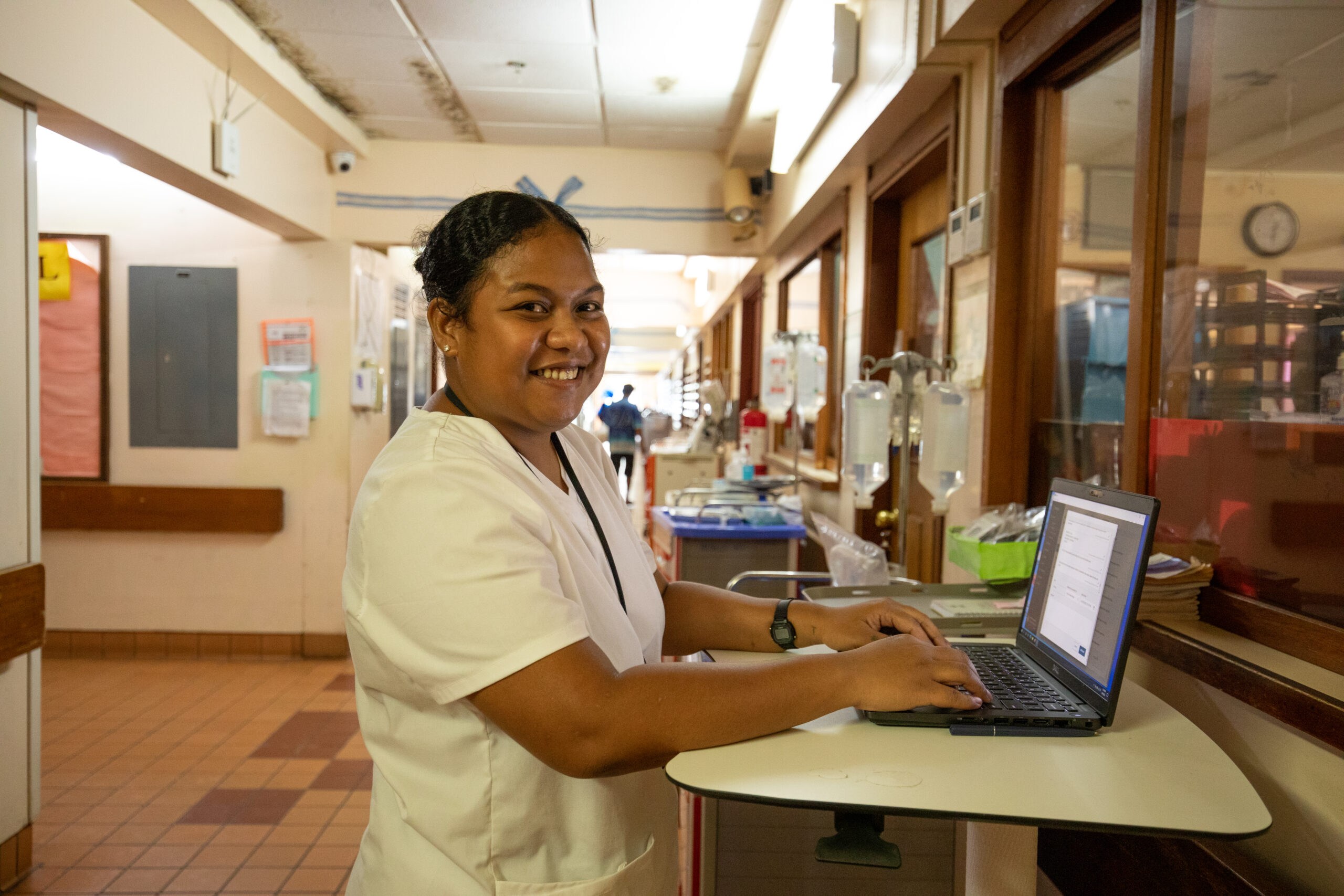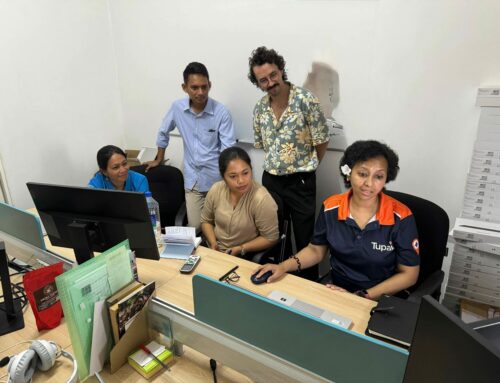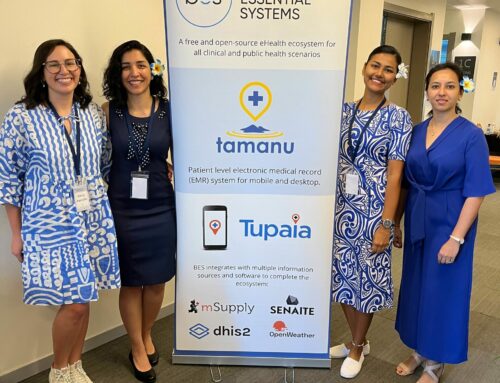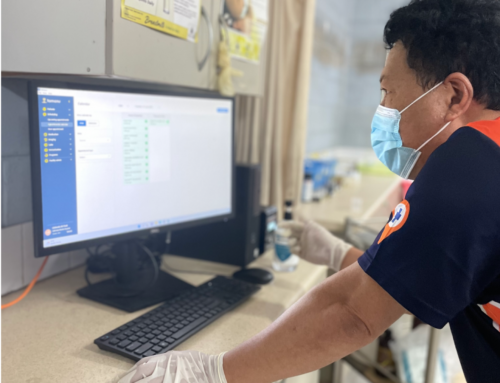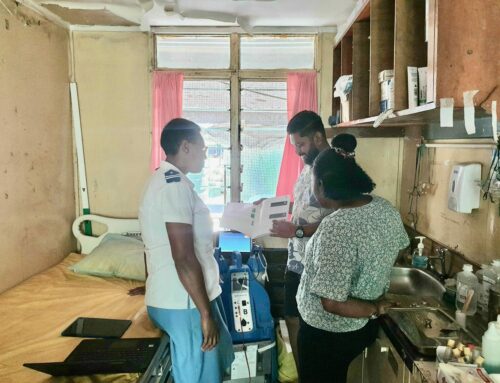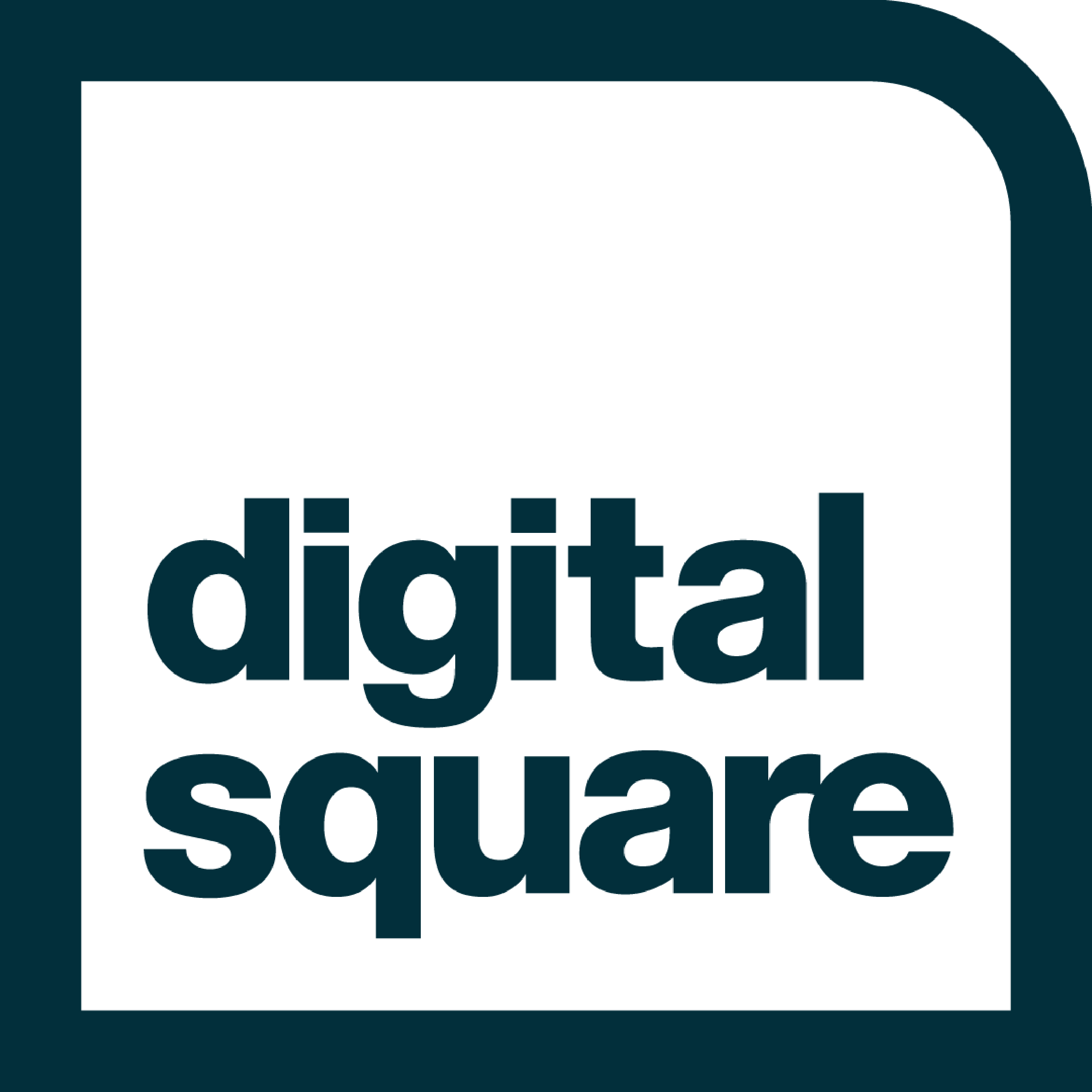In October 2022, just over 12 months ago, Belau National Hospital (Palau) was a hive of excitement anticipating the go-live of Tamanu in all departments. With months of preparation and over 200 staff trained on Tamanu it was time for the big day.
Tamanu is a patient-level Electronic Health Record designed specifically for health settings in the Indo-Pacific. It has mobile and desktop versions and can be used at tertiary facilities across nearly the full spectrum of patient encounters. BES was contracted to implement Tamanu at Belau National Hospital in partnership with the Palau Ministry of Health & Human Services and with the generous support of DFAT. This forms the centrepiece of Project Olangch, a comprehensive digitisation project for the health system of Palau which also includes Tupaia, mSupply, SENAITE and DHIS2.
The initial excitement was infectious. In qualitative interviews following training and early testing, nurses were giving responses including ‘I like Tamanu because I can take the laptop to the bedside of the patient and do my data entry there’ and ‘Tamanu saves us time with everything’.
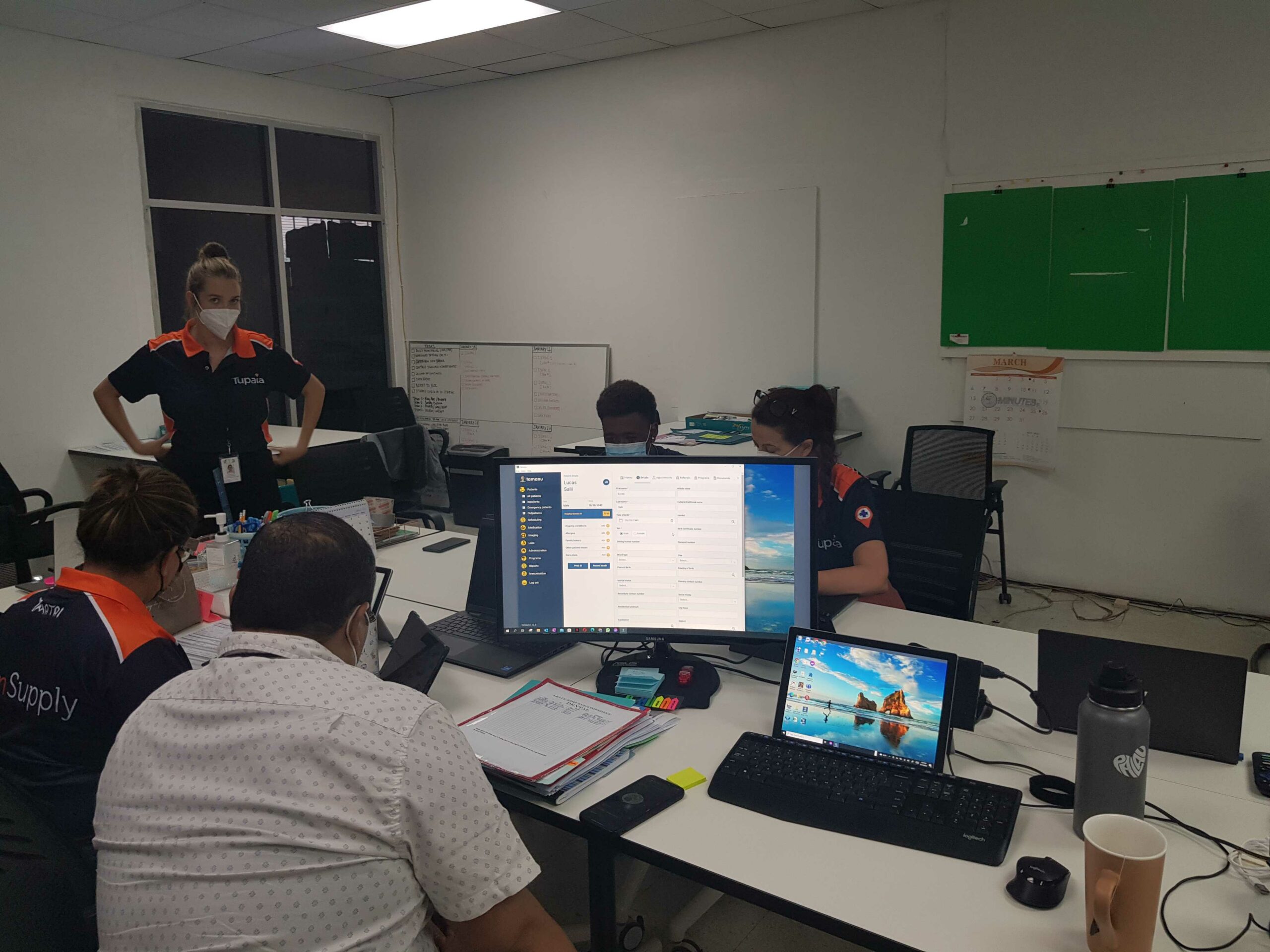
Usage statistics
Since then, the roll-out has been a huge success. Over the last 12 months Tamanu has tracked over 59,000 encounters (29,000 of which were for female patients). Across those encounters, the system has captured >38,000 diagnoses, 5340 imaging results, >124,000 lab requests, 1408 care plans, and >18,000 procedures. The data is analysed and automatically provided back to hospital administrators and Ministry staff in real-time dashboards that they can use to track and plan services.
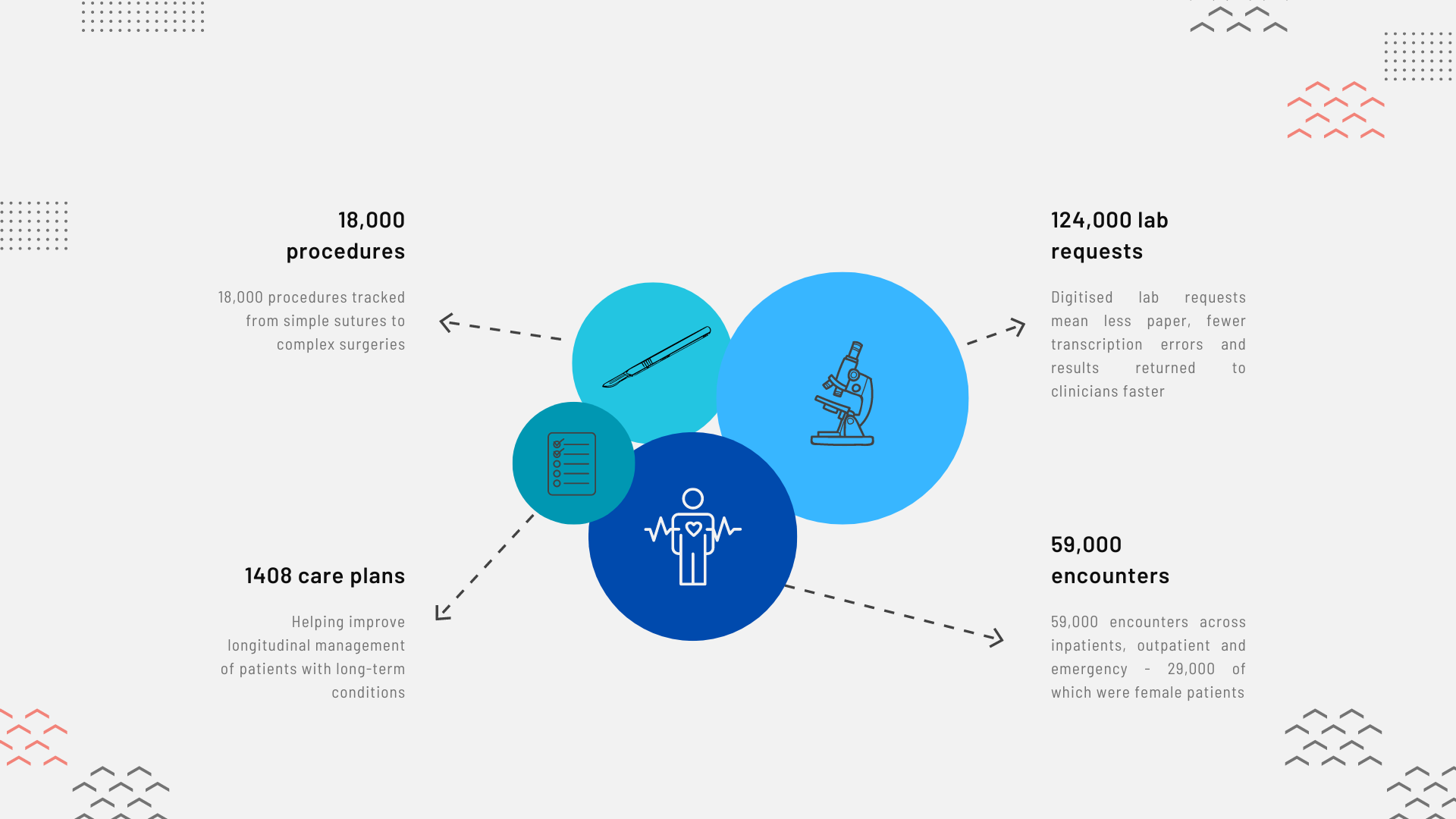
“(Tamanu) makes admissions really easy” – Doctor
Data for decision making
All of this data from the EHR is de-identified, aggregated and then visualised in Tupaia, a data aggregation and analysis platform. Over 192 visualisations are displaying data in Tupaia, allowing for staff to use the data they are collecting for decision making. Key data points and dashboards are used to facilitate regular meetings and are becoming an everyday part of decision making. Data from the Tamanu EHR is combined with other data sources, such as environmental health teams out in the field.
Again, the data tells an encouraging story from Tupaia – 119 unique users have accessed this important aggregate data from within Palau for a total of 475 sessions. Most impressively, the average engagement time for these sessions is 26m and 47s, providing strong evidence that users are not simply accessing it to have a quick look but are engaging with it. That data translates to 12,706 minutes of engagement – supervisors and administrators interacting with real-time, aggregated health data.
“Tamanu saves us time with everything” – Nurse
Challenges
It hasn’t all been smooth sailing. In July 2023 the systems were truly put to the test, with a four day internet outage across the country. With the benefit of Tamanu and mSupply being able to operate fully offline, this outage had little to no impact for the digital health systems. One of our allied health staff commented saying “one thing I like about Tamanu is you don’t need the internet… which has been made very clear to the staff here at the hospital!”.
Using digital systems has been a learning curve for some. One nurse has said “We have a lot of older generation here at the hospital so we have been teaching them that technology is not your enemy, it can be your friend, and how easy and beneficial it is, and once they learn that, they can see the benefits it has for our data and patients here”.
When BNH went live with Tamanu, some critical features were still missing – some of these, such as comprehensive bed management, have now been added so that the experience continues to improve for staff. Others, such as a change to the way the Invoicing module works to suit the unique needs of Palau, are still coming – so there remains much work to do.
Other systems
Whilst this was going on, over the last year, BES has been rolling out mSupply at the warehouse, pharmacy and Community Health Centre (CHC) dispensaries across the country. mSupply is an end to end solution incorporating procurement, forecasting, warehousing, distribution and last-mile mobile solutions.
Most recently the a Laboratory information management system, Senaite, has been implemented for processes such as sample management, data analysis and quality control. Although it’s still in its initial phases of implementation, excitement is building with lab staff saying “It’s going to really improve our reporting, its going to minimise medical errors, and we’re really happy about that, also we’re going to be very happy when all of our lab analysers are going to be interfaced with the system so that we just do the testing and it gets sent out to the doctors”.
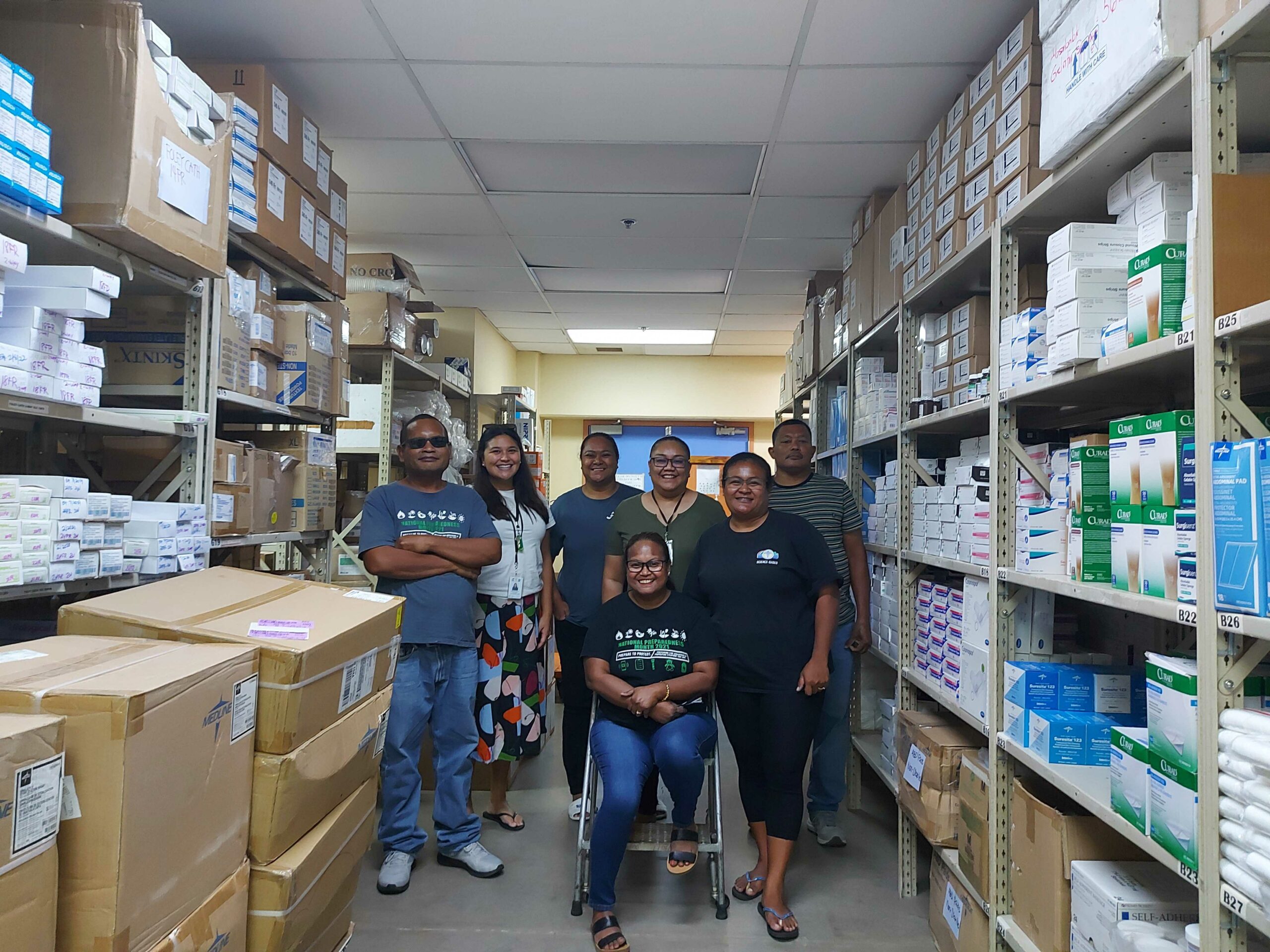
The future
Walk around Belau National Hospital today and all clinical staff have access to real-time patient data using modern, fit-for-purpose digital tools. Over the coming 18 months, we will work with Palau to more tightly integrate these systems (e.g. integrating their RIS/PACS system with Tamanu) and build out more features around invoicing and patient appointments to suit the unique needs of the Palau Ministry of Health and Human Services. The ultimate outcome is improving patient outcomes – reducing errors, reducing readmissions, shortening wait times and improving the transition back to the community following tertiary care – to track this, we also aim to undertake more M&E looking at these outcomes instead of focusing on basic usage of the system itself. The good news is that the digital systems make this detailed M&E much easier and faster.
We’re looking forward to continuing the partnership. The future is bright and it is digital.
“Tamanu? I LOVE IT” – Nurse
